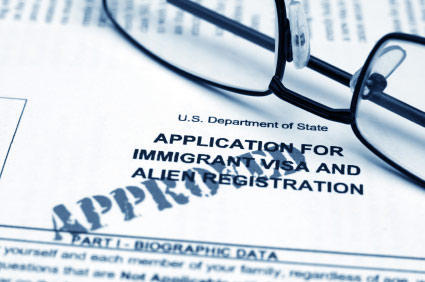Waivers of Inadmissibility
 Whether you are adjusting your immigration adjusting status in the United States or processing the visa petition at a U.S. consulate in your home country, it is crucial to analyze whether you will need a waiver of inadmissibility.
Whether you are adjusting your immigration adjusting status in the United States or processing the visa petition at a U.S. consulate in your home country, it is crucial to analyze whether you will need a waiver of inadmissibility.
Any time a person becomes a Lawful Permanent Resident, she or he must “admissible” into the country. There is a laundry list of acts, enumerated Section 212 of the Immigration and Nationality Act that make an immigrant inadmissible. For example, having certain criminal convictions, or living in the United States without legal status can make an immigrant inadmissible.
Hardship Waivers
Usually to win a waiver case, the attorney and U.S. citizen or Lawful Permanent Resident relative must come up with enough compelling evidence that the relative will suffer what is called “extreme hardship” if the immigrant is not granted the waiver. This requires proving that the U.S. Citizen or Lawful Permanent Resident needs the immigrant relative in the United States to avoid suffering what the law calls “extreme hardship.” It also requires proving that the U.S. citizen or Lawful Permanent Resident will suffer extreme hardship if she or he is required to move the immigrant’s home country to be together during the during the time period that the immigrant is inadmissible.
Many factors can be used to prove extreme hardship to the U.S. citizen or Lawful Permanent Resident spouse or parents. The strongest evidence usually involves medical conditions or extreme economic hardships. However, there are many other hardships that the government will consider, which, taken as a whole, can amount to extreme hardship. These include poor country conditions in the home country, lack of familial support, educational and career opportunities; language barriers and cultural barriers. It is vital to have an experienced attorney analyze the facts of your particular case to help you put together the strongest possible waiver application to ensure that you and your relative can live together in the United States.
To avoid a visa denial and/or deportation, it is very important to know whether your relative will face any of these inadmissibility issues before embarking on the journey to become a Lawful Permanent Resident. Please call us to get a professional, insightful evaluation on your whether you are inadmissible and, if so, whether you will qualify for a waiver given your unique situation.